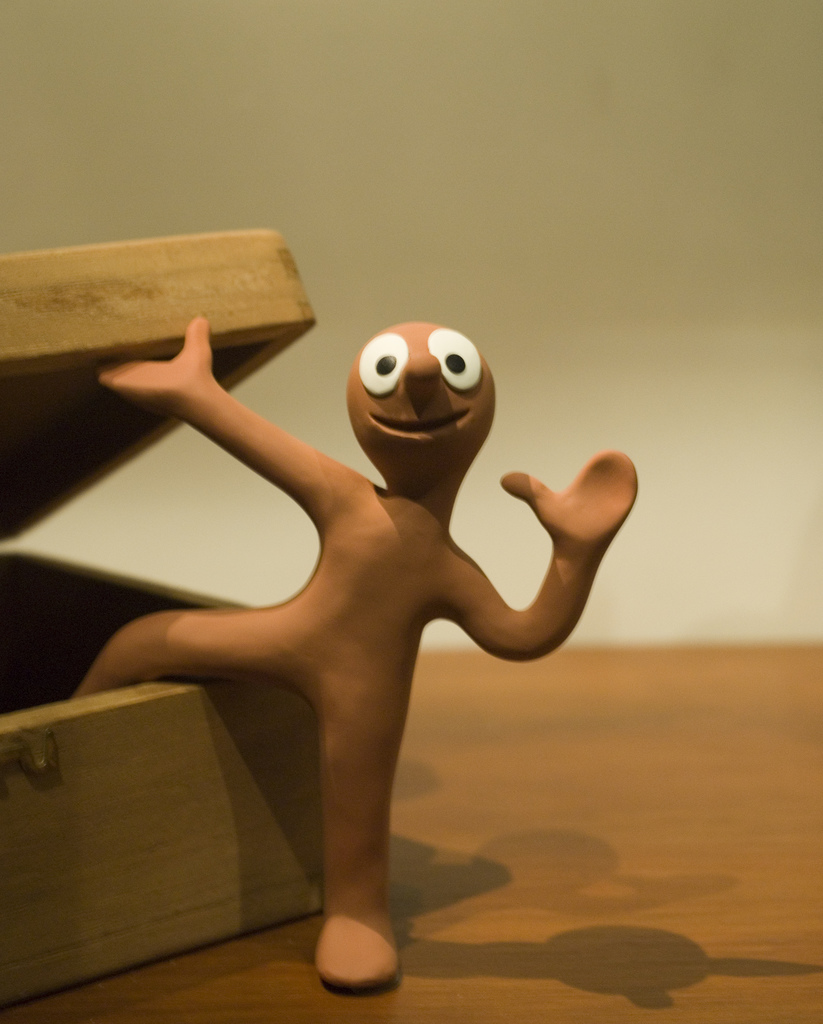7.5.1
Design Communication
Design Communication: Drawings
Design Communication: Drawings
You need to be able to produce a range of design ideas and solutions for your NEA/coursework. You will need to develop your design ideas through sketching, CAD, modelling, testing and feedback.


Freehand sketching
Freehand sketching
- Freehand sketching and quick ideas is a brilliant way to record your thoughts and ideas on paper.
- These can later be refined and presented.
- Do not be worried about rough or scruffy sketches in your work as these are a great starting point.
- Annotation (notes) are key to make sure your idea and sketch are fully explained.


3D sketching
3D sketching
- 3D sketching brings your ideas to life.
- Use isometric or perspective drawing to help with the layout of your work.
- These drawings and ideas should be better presented than the freehand sketching and more detail, colour and time should be added and taken with these drawings.


Exploded drawing
Exploded drawing
- This can be done by hand or on a computer.
- This style is to show the different parts of the product so the product is exploded.
- It is used a lot for furniture design especially instruction booklets like IKEA.


Annotation
Annotation
- Adding notes explains your thoughts.
- Use these key points to help structure your notes:
- What do you like or dislike about the design?
- How does the design link to your brief/ client needs?
- What material will it be made from?
- What processes are required to make it?
- Will it be easy or difficult to make?
- Where did the inspiration come from?


Working drawings
Working drawings
- Working drawings such as orthographic allow you to look at a plan view of a product.
- The drawings are technical and show the sizes of the product in a set format.
- All parts should line up across the three views of plan(top), side and front view.
- These drawings need to be drawn in scale e.g. 1:2 so the object is half the size of the actual product.


Schematic drawings
Schematic drawings
- Schematic drawings are used for circuit boards and show the layout of the components and which components are being used throughout the circuit.
Design Communication: Modelling
Design Communication: Modelling
You need to be able to produce a range of design ideas and solutions for your NEA/coursework. You will need to develop your design ideas through sketching, CAD, modelling, testing and feedback.


CAD models
CAD models
- CAD (Computer Aid Design) models allow you to develop an idea and make very quick changes to it on the computer.
- There are lots of different types of CAD software from 2D packages to 3D packages and many of them free to students studying Design Technology.


CAD models cont.
CAD models cont.
- CAD is any design drawn on a computer rather than by hand.
- This makes it quicker to edit, can provide you with working drawings automatically and the design can be sent to CAM, (computer aided manufacture) machines such as a laser cutter or 3D printer.


Modelling
Modelling
- Use plasticine, card, styrofoam (blue foam), timber and plastic to make your models.
- Start off simple and then get more detailed with the models you make.
- You do not always have to model all of your design just test out the different parts to see if they work.


Modelling cont.
Modelling cont.
- Think about the following:
- Is it the right size?
- Is it the right shape?
- Is it aesthetically pleasing (colour, shape design)?
- What are the options?


Other modelling techniques
Other modelling techniques
- Card modelling works as parts can be joined together using masking tape and a hot glue gun.
- Toiles are used in the fashion industry to test out a design using cheaper material. You can check the pattern and the style before using the more expensive material.
- For electronics, test your circuit out using breadboards. No soldering is involved and it is an easier way to change the circuit. It is a quicker way to test out the circuit design.


Mathematical modelling
Mathematical modelling
- Mathematical modelling is a way of simulation on a PC real life situations using a maths formula.
- It can be used to demonstrate how a system will work or change if options are modified in the settings.
- It is used a lot when designing cars to see how streamline the car is and how much drag is created by the shape of the car.
Design Communication: Other Techniques
Design Communication: Other Techniques
You need to be able to produce a range of design ideas and solutions for your NEA/coursework. You will need to develop your design ideas through sketching, CAD, modelling, testing and feedback.


Audio and visual recordings
Audio and visual recordings
- Audio and visual recordings allow you to capture either your client's thoughts and feedback or your target market's reactions and suggestions.
- Ensure you have people's permission to do this.


Analysing recordings
Analysing recordings
- You can upload the video/recordings and use them to write up their comments if you have recorded the interview.
- Most importantly you can analyse and evaluate what people said and how they reacted.
- Most mobiles will allow you to record without the need to buy expensive equipment.


Testing
Testing
- Testing - you need to ensure that the models you make you test out, from reviewing the shape and size of the models through to the colour and the style.
- Get feedback from your client and target market about your design ideas.
1Core Technical Principles
1.1New & Emerging Technologies
1.2Energy Generation & Storage
1.3Developments in New Materials
1.4Systems Approach to Designing
1.5Mechanical Devices
1.6Materials Categories
2Paper & Board: Specialist Technical Principles
2.1Selection of Materials
2.2Paper & Board: Forces & Stresses
2.3Paper & Board: Ecological & Social Footprint
2.4Paper & Board: Sources & Origins
2.5Paper & Board: Using Materials
2.6Paper & Board: Stock Forms, Types & Sizes
2.7Paper & Board: Scales of Production
2.8Paper & Board: Specialist Techniques & Processes
2.9Paper & Board: Surface Treatments & Finishes
3Timber: Specialist Technical Principles
3.1Timber: Selection of Materials
3.2Timber: Forces & Stresses
3.3Timber: Ecological & Social Footprint
3.4Timber: Sources & Origins
3.5Timber: Using Materials
3.6Timber: Stock Forms, Types & Sizes
3.7Timber: Scales of Production
3.8Timber: Specialist Techniques & Processes
3.9Timber: Surface Treatments & Finishes
4Metal: Specialist Technical Principles
4.1Metals: Selection of Materials
4.2Metals: Forces & Stresses
4.3Metals: Ecological & Social Footprint
4.4Metals: Sources & Origins
4.5Metals: Alloy-Based Materials
4.6Metals: Using Materials
4.7Metals: Scales of Production
4.8Metals: Specialist Techniques & Processes
4.9Metals: Quality Control
4.10Metals: Surface Treatments & Finishes
5Polymers: Specialist Technical Principles
5.1Polymers
5.2Polymer Categories
5.3Polymer Forms
5.4Polymer Production, Techniques & Quality Control
6Textiles: Specialist Technical Principles
6.1Textile Materials
6.2Selection of Materials
6.3Forces & Stresses
7Designing & Making Principles
7.1Investigation & Data
7.2Environmental, Social & Economic Challenges
7.3The Work of Others
7.4Design Strategies
7.5Communication of Design Ideas
7.6Prototype Development
7.7Selection of Materials
7.8Tolerances
7.9Material Management
7.10Specialist Equipment
7.11Specialist Techniques & Processes
Jump to other topics
1Core Technical Principles
1.1New & Emerging Technologies
1.2Energy Generation & Storage
1.3Developments in New Materials
1.4Systems Approach to Designing
1.5Mechanical Devices
1.6Materials Categories
2Paper & Board: Specialist Technical Principles
2.1Selection of Materials
2.2Paper & Board: Forces & Stresses
2.3Paper & Board: Ecological & Social Footprint
2.4Paper & Board: Sources & Origins
2.5Paper & Board: Using Materials
2.6Paper & Board: Stock Forms, Types & Sizes
2.7Paper & Board: Scales of Production
2.8Paper & Board: Specialist Techniques & Processes
2.9Paper & Board: Surface Treatments & Finishes
3Timber: Specialist Technical Principles
3.1Timber: Selection of Materials
3.2Timber: Forces & Stresses
3.3Timber: Ecological & Social Footprint
3.4Timber: Sources & Origins
3.5Timber: Using Materials
3.6Timber: Stock Forms, Types & Sizes
3.7Timber: Scales of Production
3.8Timber: Specialist Techniques & Processes
3.9Timber: Surface Treatments & Finishes
4Metal: Specialist Technical Principles
4.1Metals: Selection of Materials
4.2Metals: Forces & Stresses
4.3Metals: Ecological & Social Footprint
4.4Metals: Sources & Origins
4.5Metals: Alloy-Based Materials
4.6Metals: Using Materials
4.7Metals: Scales of Production
4.8Metals: Specialist Techniques & Processes
4.9Metals: Quality Control
4.10Metals: Surface Treatments & Finishes
5Polymers: Specialist Technical Principles
5.1Polymers
5.2Polymer Categories
5.3Polymer Forms
5.4Polymer Production, Techniques & Quality Control
6Textiles: Specialist Technical Principles
6.1Textile Materials
6.2Selection of Materials
6.3Forces & Stresses
7Designing & Making Principles
7.1Investigation & Data
7.2Environmental, Social & Economic Challenges
7.3The Work of Others
7.4Design Strategies
7.5Communication of Design Ideas
7.6Prototype Development
7.7Selection of Materials
7.8Tolerances
7.9Material Management
7.10Specialist Equipment
7.11Specialist Techniques & Processes
Unlock your full potential with Seneca Premium
Unlimited access to 10,000+ open-ended exam questions
Mini-mock exams based on your study history
Unlock 800+ premium courses & e-books